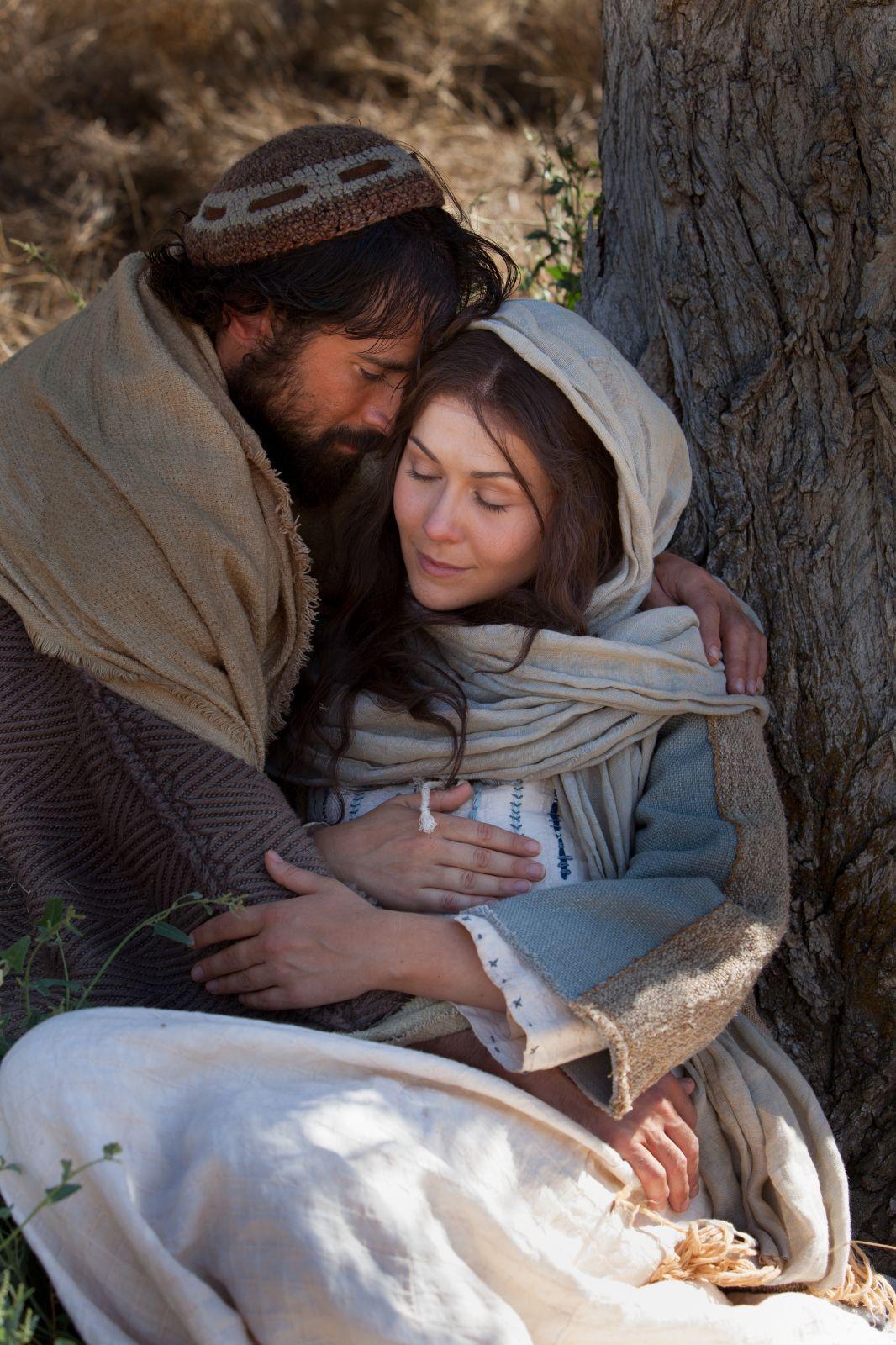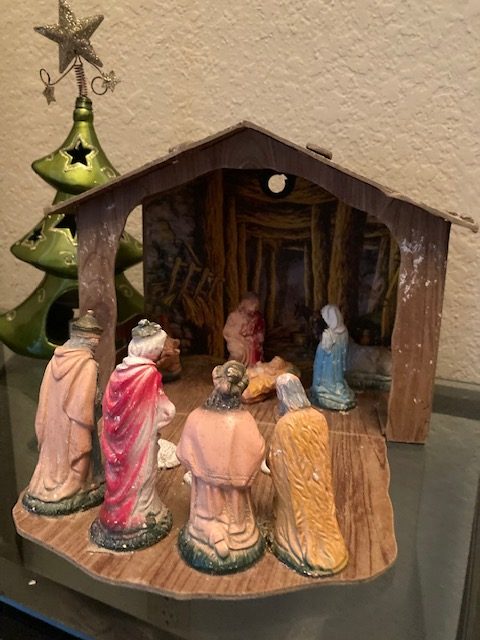Focal Passage: I Kings 3:5-12
I was in elementary school the first time I heard about King Midas. Mrs. Wallace, my third-grade teacher, introduced this piece of classical Greek literature to her class of farm kids.
If you recall the story, after extending kindness to one of Dionysus’ servants, the Greek god granted King Midas one wish.
Midas asked that everything he touched would turn to gold. It was a great wish as long as he touched a pile of stones or a palace wall. It was less desirable when he touched a rose or the turkey leg on his plate. It became a horrible curse when his daughter rushed to him in excitement and wrapped him in a hug. Just like the stones and the turkey leg, she, too, turned to gold.
While the story turned out okay in the end, Mrs. Wallace reminded us of the dangers of greed and pride. Then, as if we might find someone willing to grant us anything we wished, she told us to be careful what we ask for. She said it with such mystery in her voice, I don’t think I asked a question of any kind for the rest of that semester.
Midas wasn’t the only one to be granted a wish. It turns out that King Solomon faced a similar decision one night when God, the creator of the universe, came to him in a dream.
King Solomon spent the day offering sacrifices and incense in worship to God. In his exhaustion, he laid down to sleep. At some point in the night God spoke to him in a dream and asked that important question.
Look at I Kings 3:5.
Ask for whatever you want me to give you.
Solomon began with his heart in the right place. He responded to the blank check God offered to write by acknowledging that God had already done so much. He thought of God’s faithfulness and his promises to his father David. He thought about the joy of being David’s son and watching him serve as King of Israel.
Then Solomon got more personal with is gratitude that God had worked through circumstances to make Solomon king.
There is something innocent and intentional in his gratitude to God. Solomon recognizes he is where he is because God is faithful. That God, in his mercy and grace, did as he promised to David and to his people. By acknowledging God’s grace, Solomon expresses what is in his heart. Notice, though, that the grace Solomon senses is not the common grace God extends to all his creation. It is deeply personal.
Solomon, born to David and Bathsheba, was a child born of adultery, abuse of power and murder. Knowing how his life started, Solomon understands that his elevation as king is a clear act of God’s mercy and grace. Solomon knows where he is and who he is only because of God’s grace.
That’s when Solomon proved himself a wiser king than Midas. Look at I Kings 3:7-9. His thoughts express his gratitude.
Now, O Lord, my God, you have made your servant king in place of my father David. But I am only a little child and do not know how to carry out my duties. Your servant is here among the people you have chosen, a great people, too numerous to count or number.
Solomon was given an opportunity of a lifetime. Knowing it was within God’s power to grant, Solomon could go full bore Midas, asking that anything he touched might turn to gold. He could ask for immortality. He could ask for great victories in every battle, building a reputation to be feared and a powerful empire that no one could conquer.
Instead, in a moment of clarity and self-awareness, Solomon shared his vulnerability. He humbled himself before God, acknowledging that the situation overwhelmed him. The burden of leading God’s people weighed heavy on his shoulders and his spirit. Solomon realized his youth and inexperience could be a problem. Setting aside the pride that often comes with kingship, he understood his need for guidance as he governed God’s people.
At that point Solomon gets around to answering God’s question.
So give your servant a discerning heart to govern your people and to distinguish between right and wrong. For who is able to govern this great people of yours? (I Kings 3:9)
Solomon prays for wisdom and a listening heart. There isn’t a modicum of selfishness in the request. It’s not wisdom for wisdom’s sake. It’s not that he wants to be known as a wise king. His concern is for those he rules. That his own actions would reflect God’s will for Solomon and for God’s people.
When Solomon asks God for a discerning heart, he is asking for the ability to distinguish between good and evil, truth and error. To see what is helpful and not harmful. His request involves deep insight, moral sensitivity and spiritual wisdom. Rather than just knowing stuff, Solomon desires wisdom that transcends knowledge.
It’s the kind of wisdom that comes from God alone into a heart that is grateful, humble and focused on doing the will of God as he leads.
I studied this story recently as I prepared to teach my Bible Study class at South Main Baptist Church in Pasadena. Something about the passage caused it to keep resurfacing in my thoughts as if there might be something more I needed to learn. So, I spent some time looking again at the story.
The first thing that struck me this time was that God initiated the conversation during Solomon’s dream. Solomon had yet to voice his insecurities. Unsure if he had the ability to lead God’s people effectively, Solomon surely fretted over every decision. Doubting himself. Second guessing every call he made. Yet, he kept those thoughts to himself.
God, who certainly knew Solomon’s angst and fears, extended an invitation to the king he anointed. In essence, “Ask for whatever you want me to give you.”
Think about that for a second in a broader context that encompasses you and me. God wants to give us what we need to be the person he called us to be. It’s his fervent desire. So much so that he stands ready to provide what we need even before we know to ask for it.
It’s as if he’s telling you and me. “I’m here. I’m ready to help. I sense your struggle. Tell me what you need from me.” I find that both stunning and almost unimaginable!
It’s not that God doesn’t know what we need and is just waiting for us enlighten him. It is that he’s wanting us to reflect honestly on who we are, where we are in life and what we need from God to become the person he wants and needs us to be.
So, the passage tells me that God, in his generosity and grace, approaches his people eager to give us what we need.
Jesus encouraged his disciples with a similar thought. Once, after his disciples were so moved by Jesus’ prayer, they asked him to teach them how to pray as he did. He gave them a example to follow and then he said something that echoes what God shared with Solomon.
So I say to you: Ask and it will be given to you; seek and you will find, knock and the door will be opened to you. For everyone who asks receives; he who seeks finds and to him who knocks, the door will be opened. (Luke 9-10)
But, he didn’t stop there. Jesus, with, I suspect, a playful gleam in his eye and a giggle on his lips, went on to explain that God, like any good father, wants to say yes to our requests if he can.
Which of you fathers if your son asks for a fish, will give him a snake instead? Or if he asks for an egg will give him a scorpion. If you then, though you are evil, know how to give good gifts to your children, how much more will your father in heaven give the Holy Spirt to those who ask him! (Luke 11:11-13)
I don’t know whether the parallel is intentional, but it connected with me. See if this makes sense to you.
Jesus is promising a gift from God greater than anything else he could give us. “How much more will your father in heaven give the Holy Spirit.” That’s God in us. Always. His thoughts. His guidance. His counsel. His wisdom. Available to us if we only open our hearts and listen.
Now look at what God grants Solomon.
The Lord was pleased that Solomon had asked for this. God said to him, “Since you have asked for this and not for a long life or wealth for yourself, nor have asked for the death of your enemies, but for discernment in administering justice, I will do what you have asked. I will give you a wise and discerning heart so that there will never have been anyone like you, nor will there ever be.” (I Kings 3:10-12)
Is it a stretch to believe that the wisdom to discern and administer justice grows from the work of the Holy Spirit in our lives? The spirit of God within us who is our counselor enables us to listen with the ears of God, to act as his hands and feet, to discern right from wrong with the heart of God?
Is seems to me that when Solomon asks for a discerning heart, when he asks for wisdom, he’s asking for God’s spirit to guide his every thought and deed in ways that honor God. And God grants that request, not just to Solomon, but to us when the spirit comes upon us at the moment we give our lives to Christ.
It is this spirit that offers the discernment and wisdom we need to live the life to which he has called us. We just have to break down all our self-created barriers that keep us from accessing the spirit to the fullest.
That’s really the second truth revealed in this passage in I Kings. It goes back to what Mrs. Wallace said. Be careful what you ask for.
It’s Solomon’s response to the blank check he had been given that defines the rest of the story. In response to God’s invitation, Solomon demolished those barriers by sharing openly what was on his mind.
None of us want to be vulnerable, much less show that side of us to the world around us. The king was no different in that regard than each of us. In this critical moment with God’s invitation hanging in the air, Solomon opened his heart to God with the kind of deep humility that only the truly overwhelmed can know.
Look how Eugene Peterson says it in The Message.
And now here I am: God, my god, you have made me, your servant, ruler of the kingdom in place of David my father. I’m too young for this, a mere child! I don’t know the ropes, hardly know the ins and outs of this job. Yet, here I am, set down in the middle of the people you’ve chosen…
In that moment, we’ve invaded the privacy of his mind where Solomon is alone with his thoughts. We see him, at his most vulnerable: lost in his role and admitting to God that he is helpless on his own.
When given the chance to ask for anything, Solomon chose a listening heart. He chose discernment and wisdom. Even in his fragile state, Solomon realizes that his role in God’s kingdom is not about power and might, it is about serving. It’s about leading with love and justice.
Solomon’s humble heart reminds me that I don’t have to know everything. Even if it’s only in my quiet self, I can acknowledge my vulnerabilities and lay them before God, instead of pretending I have it all figured out.
All I need is the spirit’s indwelling presence that imbues me with a heart that listens and discerns truth. A heart dependent upon the wisdom of God available through the spirit’s counsel.
It’s something James, the half-brother of Christ, reminds us about at the beginning of his letter to believers.
If any of you lacks wisdom, let him ask of God, who gives to all liberally and without reproach, and it will be given to him. (James 1:5)
So, the creator of the universe, our father, extends us the same invitation that he extended to Solomon. “Ask for whatever you want me to give you.”
What will you tell him?
Thinking Points
When God tells you, “Ask for whatever you need me to give you?” what is the first thing that comes to your mind? How honest and vulnerable are you willing to be?
How can you cultivate a heart that seeks wisdom and discernment over personal gain or comfort?
In what areas of life do you need to invite God’s indwelling spirit to guide your thoughts and decisions more fully?
What barriers keep you from hearing the spirit’s wisdom and guidance in your daily life?









